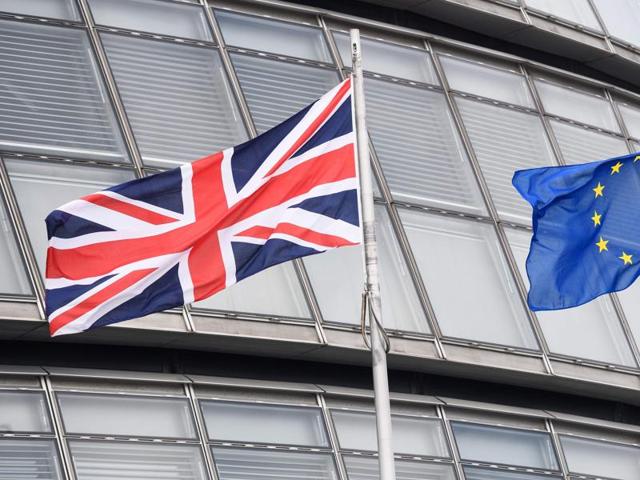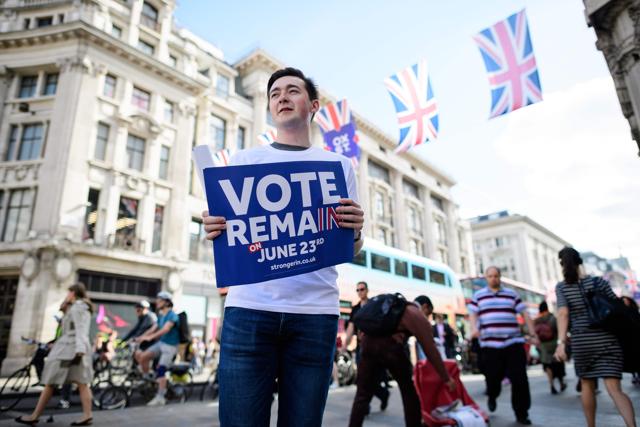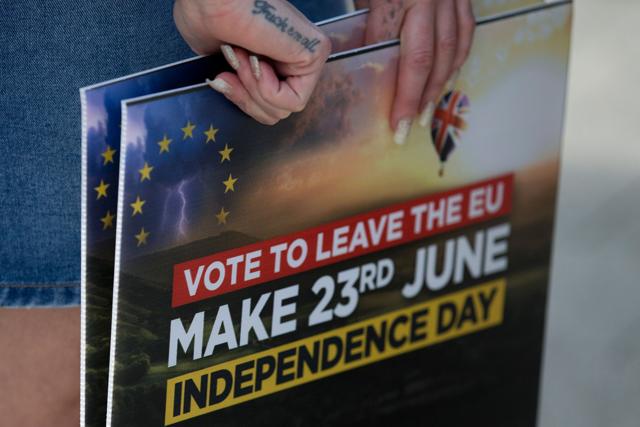Brexit vote: All you need to know about Britain’s referendum on leaving the EU
A referendum will be held to decide whether Britain should leave or stay in the European Union (EU). The possible exit, called “Brexit” (Britain+ exit), could have lasting consequences.
A referendum will be held to decide whether Britain should leave or stay in the European Union (EU).

The possible exit, called “Brexit” (Britain+ exit), could have lasting consequences.
Here are the key things that you need to know about the historic vote that could shape British-EU ties:
What is a referendum?
A referendum is a vote in which everyone of voting age can take part, normally giving a “Yes” or “No” answer to a question. Whichever side gets more than half of all votes is considered to have won.
When is the vote?
The referendum is scheduled for Thursday, June 23.
Watch | Why India doesn’t want Brexit
What is the European Union?
The European Union is an economic-political union with roots in the post-World War II era, set up as a response to nationalism that ripped through Europe at the time. The idea was to ensure peace partly by promoting economic cooperation in a single market of the member-states. It has headquarters in Brussels, has its own currency - the Euro - which is used by 19 of the member countries, its own parliament and it now sets rules in a wide range of areas - including on the environment, transport, consumer rights and even things like mobile phone charges. Citizens of member-states have the right to ‘freedom of movement’, which means the citizens can move, live and work in any of the member-states. It currently has 28 member-states, with more (including Turkey) applying to join.
Why is it being held?
Britain has always been uneasy about the EU since its formation in the early 1950s. It voted in a referendum in 1975 to stay in the EU, but since then, many believe Britain did not have a say on its relationship with the EU. There has been much disquiet in Britain since the early 2000s about migration into the country from within the European Union and its effects on communities, towns, wages and public services. In 2004, 10 East European countries joined the EU; two more joined in 2007, allowing its citizens freedom of movement. In 2013, Prime Minister David Cameron promised to hold a referendum if he won the 2015 general election.
What is the referendum question on the ballot paper?
“Should the United Kingdom remain a member of the European Union or leave the European Union?”
Who is campaigning?
There are two sides recognised by the Electoral Commission: the In Campaign Ltd and Vote Leave Ltd – the first campaigning to remain in the EU and the second to leave. The official position of the David Cameron government is to remain in the EU; thus, Cameron and most of his ministers and Conservative MPs are on the ‘In’ side, so is Labour. Vote Leave includes six ministers, including Justice Secretary Michael Gove, employment minister Priti Patel and Boris Johnson. The UK Independence Party (leader: Nigel Farage), which has enlisted much support in recent local and general elections on its anti-EU plant, is not part of Vote Leave, but has been campaigning vigorously.

What are the main arguments to stay?
The Remain side has made economy its main plank. Britain’s economy has grown since it joined the EU; it enjoys tariff-free movement of goods, services, capital and workers across the 500-million strong EU market. It says millions of British jobs depend on continued membership of the EU. Britain also benefits from EU’s policies on climate change, agriculture, fisheries, education. Membership also allows Britons to move, live and work across Europe. It argues that leaving the EU would shrink the economy, lead to job losses and more austerity in public spending. Cameron has already got a ‘deal’ from Brussels to reinforce its ‘special’ place in the EU: curbs on EU migrants accessing state benefits, not being part of Schengen, continued use of its own currency, the pound (not adopting the Euro). Most of British business and industry supports the ‘In’ cause.
What are the main arguments to leave?
The Brexit camp has made the sensitive issue of immigration its main plank, which has gained it much traction in recent opinion polls. It wants to put in place the same tough conditions for EU migrants as for people from India and other non-EU countries. Its key message is: ‘Take back control’, building on the perception that more and more national powers have been taken over by the EU ‘super-state’. It wants Britain to be run by its own elected representatives, instead of un-elected bureaucrats in Brussels. This camp has its own group of business and industry leaders who want a leave vote. It wants to trade more with India and the Commonwealth after leaving the EU.

Who can vote?
British, Irish, Indian and other Commonwealth citizens over 18 who are resident in the UK, along with British nationals living abroad who have been on the electoral register in the past 15 years. Citizens from EU countries living in Britain – apart from Ireland, Malta and Cyprus – cannot vote.
What about the Indian diaspora in Britain?
Some polls suggest that since both sides have near-equal support, votes of Indians and other minorities would play a deciding role. Most of the Indian community supports remaining in the EU, but there are Indian and Indian-origin businessmen who support leave. The main Indian-origin politician in the Brexit camp is Priti Patel, who is joined by MPs Suella Fernandes and Rishi Sunak. There are 15 Indian-origin law-makers, including Labour’s Keith Vaz, who are in the ‘In’ camp. Cameron and Chancellor George Osborne have been visiting temples to campaign for the ‘In’ vote, while Patel has been touring cities and areas with large Indian presence to canvass for Brexit.
What is India’s position on the referendum?
India does not have an official position, since it would be seen as an interference, but Prime Minister Narendra Modi said during his November 2015 visit to London that India sees Britain as a ‘gateway’ to Europe. India is the third-largest investor in Britain and nearly 800 Indian companies are based in Britain. FICCI would like Britain to remain in the EU. The Reserve Bank of India, Nasscom and other Indian organisations have been closely monitoring the developments, with reports that plans for investment and expansion have been put on hold until the outcome of the referendum is known.
Is the referendum important?
Yes, it has major implications on Britain’s perception of itself and its place in international relations. But most of all, remaining or leaving will have serious implications for Britain’s economy, with many knock-on effects on the global financial system, given London’s pre-eminent position in the world of finance. Given that opinion polls and bookies went wrong during the May 2015 general elections, no one has an idea which way the vote will go, but bookmakers favour the Remain option.
(With inputs from agencies)
Read| Brits don’t quit: Cameron’s last-minute appeal to stay ‘In’ EU before referendum
Read| 5 potential consequences if Britain votes to leave the European Union





